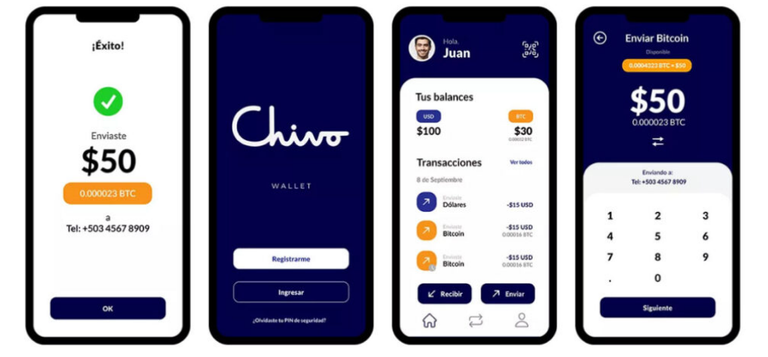"Not your keys, not your Bitcoin" is phrase often repeated in the crypto space.
The purpose of repeating this expression is to encourage people to manage their own seed phrases (from which the keys are derived), so that their crypto is safe from things like exchange hacks, fraud, and confiscation. In the crypto anarchist's ideal world, everyone would self-custody their crypto in this way, and flip the bird to the commercial banks.
In practice, however, most of the population is still very hesitant to secure a seed phrase, as it would make them 100% responsible for their money. Understandably, they would prefer to keep their crypto with a trusted third-party, despite the risks. In this post, we ponder how a gradual transition from custodial to self-custody crypto could take place.

Traditional Banking Is Custodial
People are accustomed to keeping their "money" in a bank. I put the word money in quotation marks because today's "money" is merely digital numbers in centralized databases, backed by nothing but bankrupt governments' promises to service their exponential debts (and the threat of military violence, of course). This is in stark contrast to the world before 1971, when the US dollar was backed by gold.
If we look even further into the past, people used to hold physical gold coins and trade them directly for goods and services. For safety and convenience though, eventually the populace started storing their gold in custodial banks (for a small fee) in return for paper IOUs, which they could more easily transfer amongst each other as money.
Cryptocurrencies Offer Self-Custody
With the advent of Bitcoin and other cryptocurrencies, we have a new form of money that is not only limited in supply, but lightweight, and invulnerable to physical theft (so long as the private keys are managed correctly).
You have probably noticed that most people are quite hesitant to secure their seed phrase. And even if they do, they often end up accidentally losing it, or saving it as a screenshot on their unencrypted iCloud or Google Drive, where it could be stolen.
Due to the difficulties of self-custody, a lot of people opt to store their digital assets in a "trustworthy" crypto bank, like Coinbase or Binance, similar to how people would store their gold at a bank. If you aren't tech-savvy enough, and the custodian is 100% trustworthy, then it may actually be safer to store it this way.
The problem is that banks often start off as trustworthy, but end up being corrupted by unscrupulous individuals over time, or even nationalized. In the case of crypto, customers have the option to self-custody their assets, so long as the local government hasn't outlawed it.
Fiat to Crypto Transition
If you've been paying attention, the growing trend towards crypto adoption is picking up pace, from individual adoption, to institutional adoption. We are seeing no-coiners converting to Bitcoiners, and Bitcoin maxis transitioning to shitcoiners. The transition from fiat to crypto seems inevitable at this point.
However, since the dollar remains relatively stable, the vast majority of the population still isn't motivated to move their wealth into Bitcoin or other crypto assets. That said, with each bull/bear cycle we go through, we see more people drawn permanently into the space.
Consider too that with our unsustainable debts, and the elite's plans for draconian CBDCs, it would appear that fiat currencies are being setup to fail completely, and that will give people the final push to enter the crypto world.
The El Salvador Experiment
In El Salvador (where Bitcoin was adopted as legal tender in 2021), the majority of the country's citizens use the government issued Chivo wallet. This is a custodial wallet, meaning there is no seed phrase to remember, and the government holds the keys to everyone's Bitcoin, whether it be lightning or on-chain.
The Chivo wallet has an option to convert received Bitcoin into digital dollars (not to be confused with decentralized stablecoins), so that merchants aren't exposed to the volatility of Bitcoin. In my experience, many businesses prefer to receive these digital dollars. Ultimately, the people are not that keen on holding Bitcoin, let alone properly securing a seed phrase.

Is El Salvador's Bitcoin experiment a glimpse into the future? In other words, will crypto banks like Coinbase and Binance eventually offer digital tokens to their customers that represent real crypto stored at the exchange, and could all the other centralized exchanges eventually become crypto banks in the future?
If this is indeed the case, power will be shifting from the fiat custodians to the crypto custodians, and that might explain why traditional financial institutions are becoming increasingly enamored with crypto.
The question is, when the world finally transitions away from traditional fiat money, considering all the chaos that entails, what percentage of the population will hold the keys to their digital assets, and how many will continue to rely on crypto banks like Coinbase, Binance, and others?
The Growing Trend To Self-Custody
We have to consider that the aforementioned crypto banks will suffer from a variety of hacks, asset confiscation, and embezzlement over time. These incidents will leave customers disillusioned, prompting them to figure out how to manage their own keys.
Also keep in mind that, as compliance requirements increase, it will become ever more difficult to withdraw or spend money from a crypto bank, causing more people to withdraw their digital assets into a self-custody wallet.
Moreover, by embracing self-custody, entrepreneurs will learn to love their newly found independence. In the past, businessmen were often held hostage by the bankers, who could suspend the bank accounts of those who didn't play by their rules.
This is a process that will take place over time, but eventually we will reach an equilibrium of those who have learned to manage their keys, and the remainder who prefer to store their money in crypto or community banks. I would not be surprised to see the majority opting for the latter.

Until next time...
As we enter into volatile times, due to the unstable fiat system and the imposition of the great reset, we have to keep in mind that the overall crypto landscape will change dramatically over the coming years and decades, and prepare ourselves accordingly.
After the transition, and when all the dust settles, we will finally arrive at a market of cryptocurrencies that are socially accepted as the established players, and a balance of self-custody vs custodial solutions. That is, until the next financial revolution takes place.
If you learned something new from this article, be sure to check out my other posts on crypto and finance here on the HIVE blockchain. You can also follow me on InLeo for more frequent updates.
Resources
Images Courtesy Of Venice AI [1]
Chivo Wallet Images [2]
Posted Using InLeo Alpha